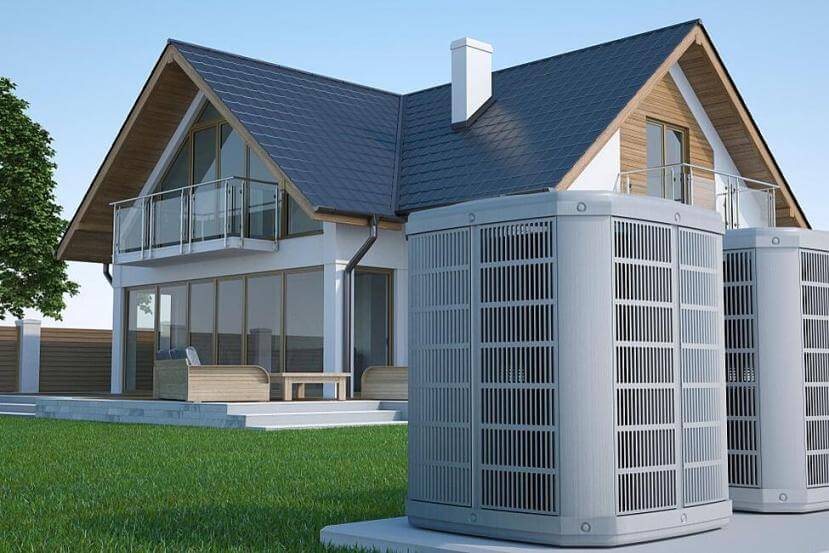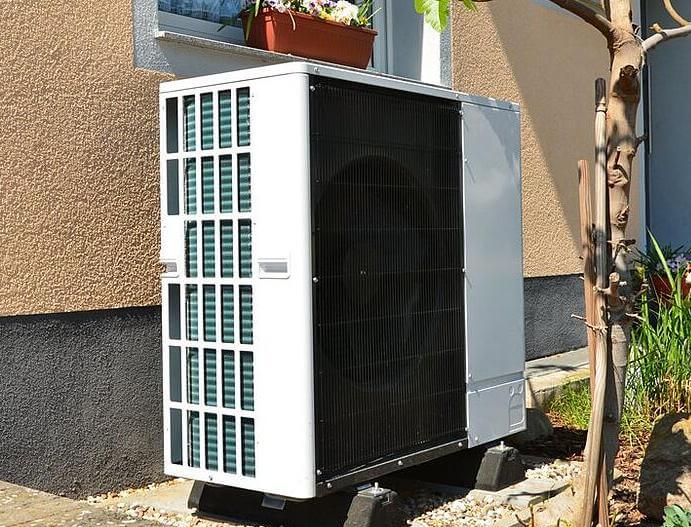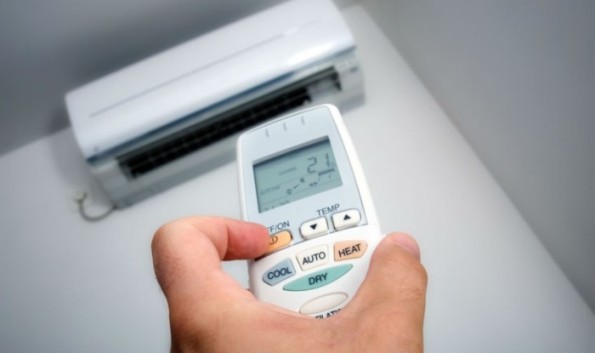When it comes to air conditioning an environment, opting for a tower fan or a fan without blades are smart and efficient alternatives due to their properties. However, as not-so-obvious options, heat pumps are featured equally.

What is the heat pump?
The heat pump is a thermal machine that takes heat from a cold space, in order to pass through a hot space. Thus, the heat that has been extracted from the cold space can be heated.
You should also know that the operation of one of this equipment is the same as an air conditioner or refrigerator, but with a different objective.
It is also interesting to understand that heat pumps serve both for cooling and heating, with the placement of a reversing valve that can change the direction of the circulation of the cooling gel. This makes it a very versatile tool.
Heat pumps are widely used to heat domestic places, but also buildings, hospitals, hotels, premises, etc.
In the same sense, they are used for heating water and for drying products.
Types of heat pumps
Regarding the types of heat pumps, we can differentiate between four:
- Air-air heat pump: These heat pumps can take advantage of the exchange between two equal elements generating the release or gain of heat between a closed room and the outside, generally they are the ones that we find in operation in air conditioners room.
- Air-water heat pump: They absorb the air from the environment and generate an exchange between it and the water, subtracting heat from the environment and delivering it to the liquid.
- Water-water heat pump: It requires some characteristics such as the existence of groundwater, which has a constant temperature of between 7ºC and 12ºC throughout the year. The pump exchanges heat between this groundwater and the house’s water network.
- Geothermal heat pumps: These heat pumps extract the heat contained in the subsoil, they are usually really water-water, but when they exchange against the subsoil (practically constant temperature), they provide very high yields, they have the inconvenience of the installation, although after their overhaul they generate greater profitability than any other, but their price and requirements are their conditioning factors.
How does a heat pump work?
A heat pump bases its operation on a circuit composed of an evaporator, condenser, compressor and expansion valve, through which a liquid refrigerant passes. When activating the pump, it will begin to suck in the air coming from outside.
In this way, the coolant will absorb the heat from the outside air by evaporating. And the liquid will take the form of gas and enter the compressor. Already in the compressor, it will increase its pressure and the temperature of the gas, in order to turn it into a hot liquid.
This is where the already hot liquid will continue to circulate until it reaches the condenser. In this, it will yield to the heat of the air that comes from inside the enclosure when heating. Then the liquid will continue its journey until it can pass through the expansion valve, where it will cool down in order to obtain the heat from the environment again and to start the cycle.
In the case of heat pumps operating as refrigerated units, the same circuit will be used, only with modifications in the circulation of the cooling liquid.

Advantages of a heat pump
A heat pump can be defined very simply due to its versatility, and it is that with one you can opt for an air conditioning system with the ability to adapt very easily to our homes or businesses.
Then using them can have the following advantages:
Optimal energy efficiency
These equipment transports heat from one point to another, instead of generating it.
This is the reason that they are able to offer you between 2 and 5 times more energy than they consume.
In addition, its electricity consumption is quite low when consuming electricity when transporting heat, so energy consumption is minimal.
It has a double functionality
As already mentioned, a heat pump is reversible.
So it can be converted into an air conditioner in the hottest months.
It is friendly with the environment
For those whose priority is to use equipment that is friendly to the environment, a heat pump does not pollute.
This is verified by knowing that they emit CO2 into the atmosphere.
Take care of the health of their users
And finally, it cannot be overlooked that a heat pump generates clean air of remarkable quality through the filters it includes.
This will result in an air with fewer bacteria, microbes and viruses circulating in your home.

